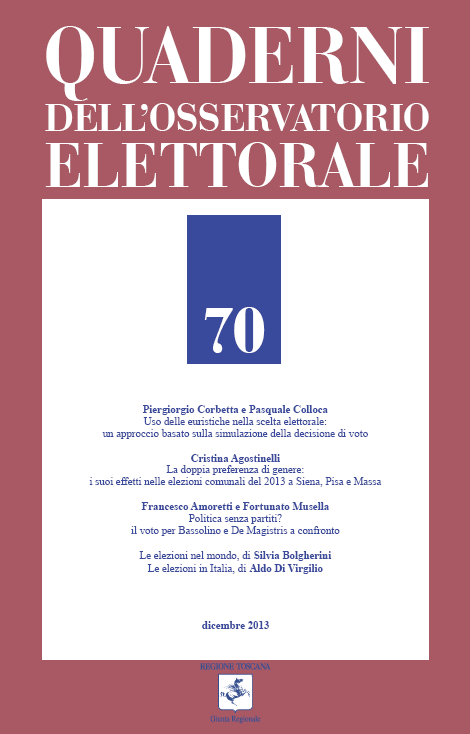La doppia preferenza di genere: i suoi effetti nelle elezioni comunali del 2013 a Siena, Pisa e Massa
Published 2013-12-30
How to Cite
Abstract
The ltalian law n. 215 of 2012 introduces important changes to the TUEL, «Law on local government», with the objective of strengthening the existing promotion of equal opportunities, supporting the local authorities and ensuring the presence of both genders within elected assemblies. The research proposes a method of comparative anal ysis to observe and control the effects produced by the new electoral instruments adopted for the election of municipal councils with at least 5000 inhabitants. The local elections of May 2013 is the first empirical demonstration of the effects of this law, which introduces the institution of dual gender preference for the selection of represen tatives and a minimum electoral rate for both genders needed to form the list of the parties. The comparative analysis is carried out considering the Tuscany Region, referring to the three towns of Siena, Pisa and Massa where the population had to renew their represen tative council adopting the new electoral law. The data analysis is performed in each mu nicipality about the election of 2013 and the previous one. The aim of the study is to check empirically the effects produced by the new law, based on three aspects closely linked to the evolution of parity democracy: the increase of women in the elective councils, the in fiuence on the characteristics of the offer of each political party and the infiuence on the voters' choices, as well as on the political culture of the government system.

